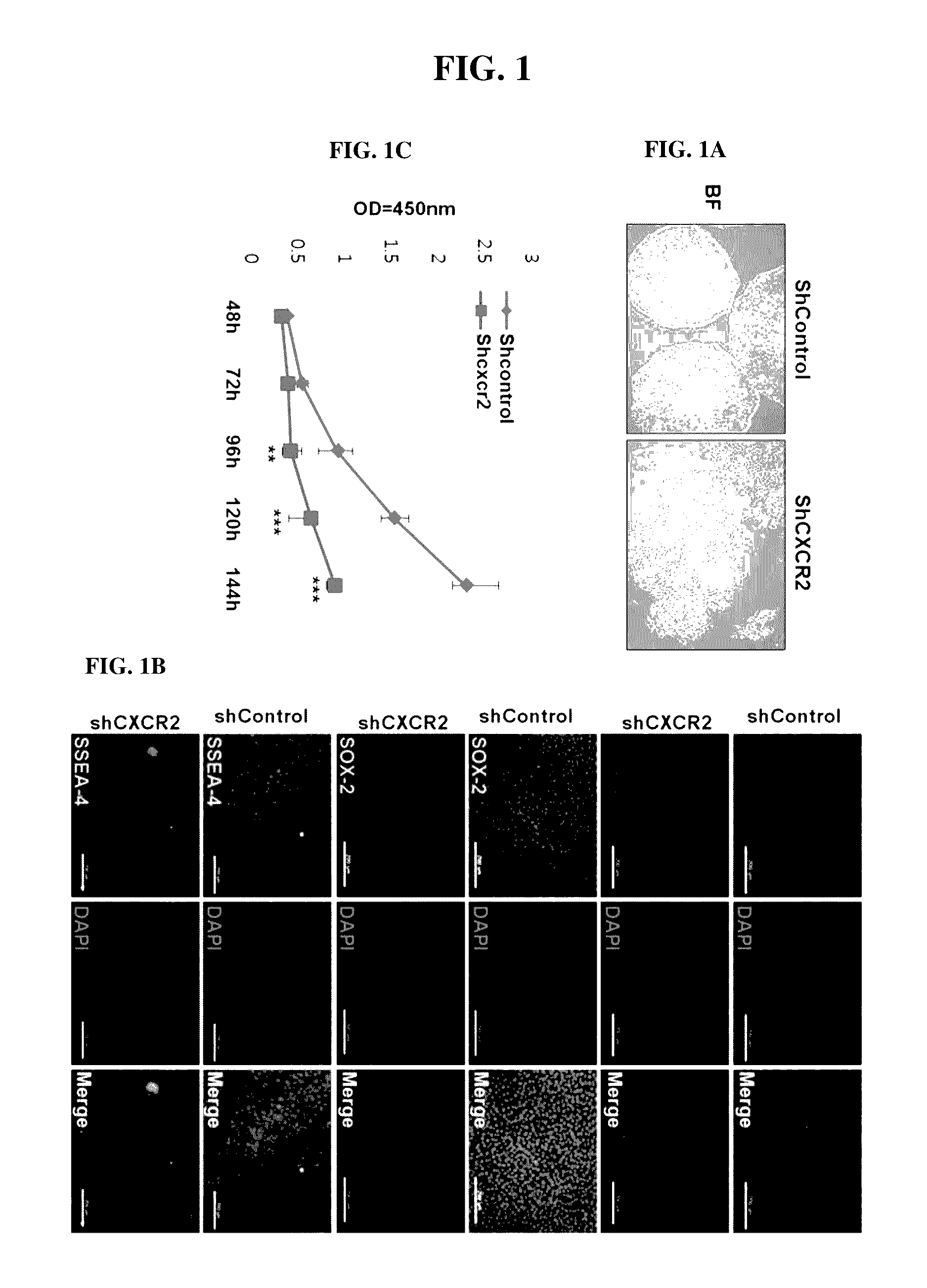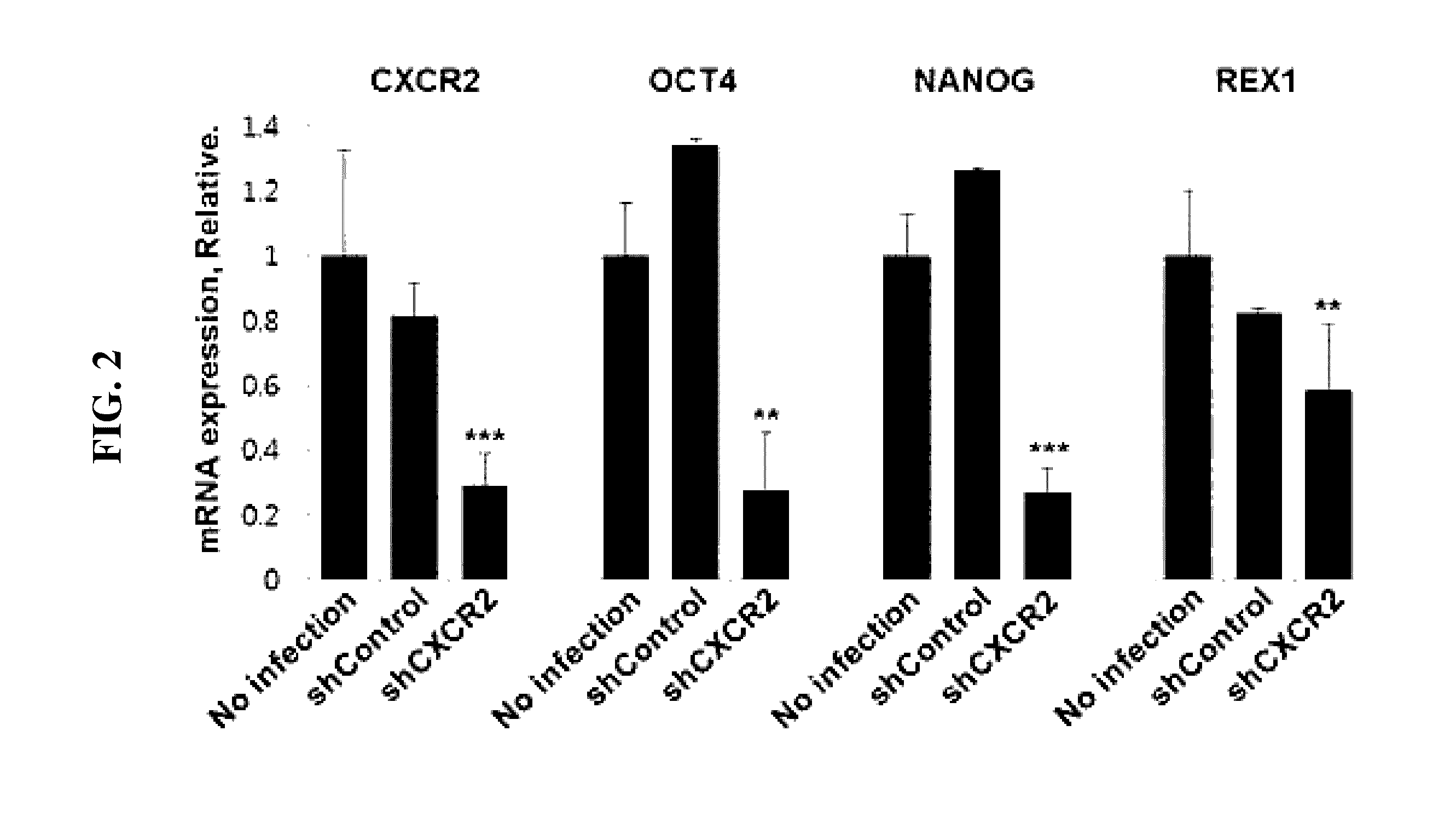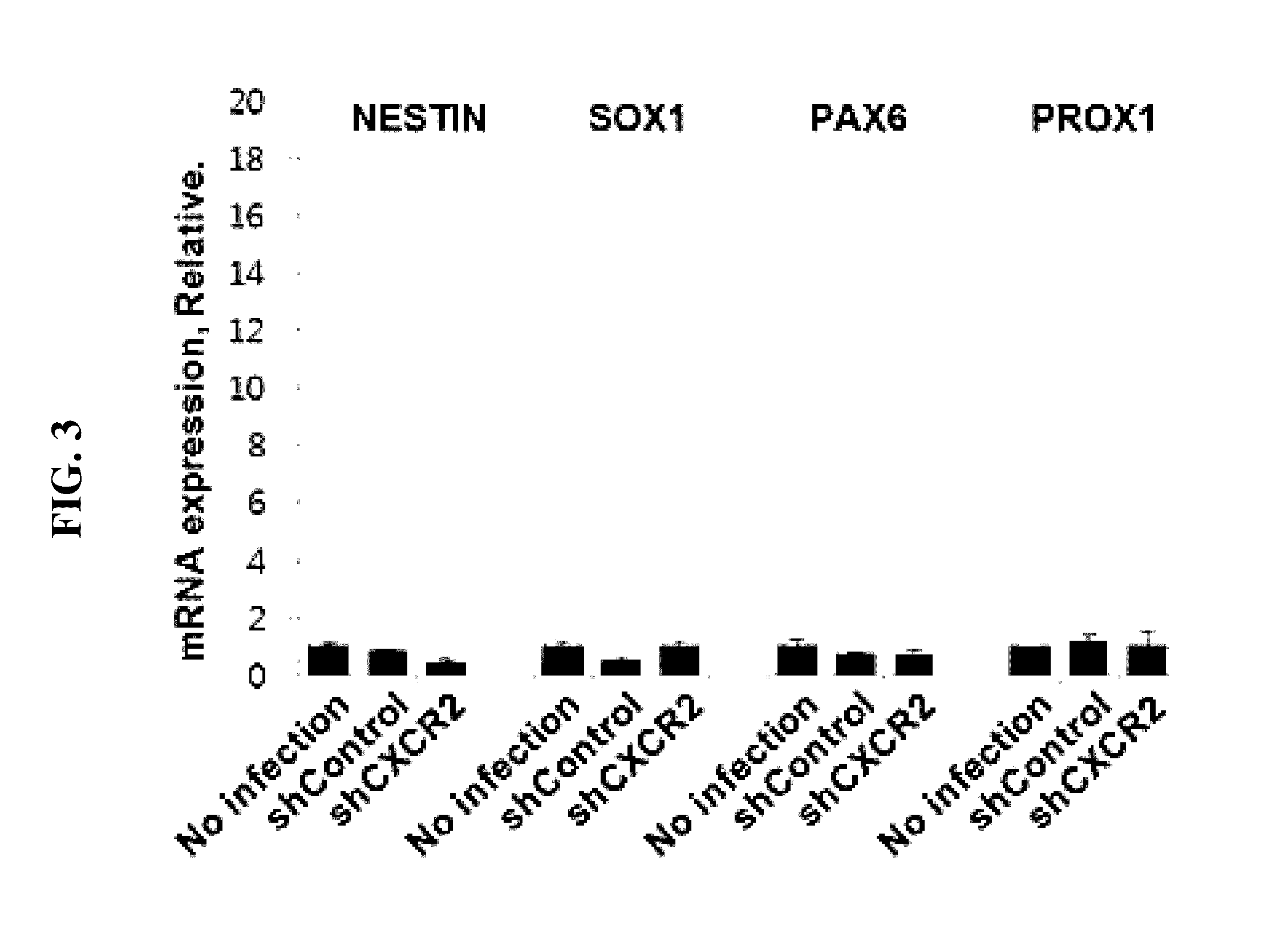Method for inducing endodermal and mesodermal differentiation from human pluripotent stem cells by cxcr2 suppression
- Summary
- Abstract
- Description
- Claims
- Application Information
AI Technical Summary
Benefits of technology
Problems solved by technology
Method used
Image
Examples
example 1
Inhibition of CXCR2 Gene Expression in Human Pluripotent Stem Cells
[0041]Human pluripotent stem cells are able to differentiate into all types of human cells, but a significant portion about the induction of lineage-specific differentiation is still required to be developed. The present inventors have found that the cell membrane receptor CXCR2 plays an important role in the induction of lineage-specific differentiation of human pluripotent stem cells. Furthermore, the present inventors could induce selective differentiation by controlling the receptor CXCR2.
[0042]In this Example, in order to inhibit CXCR2 gene expression to thereby induce differentiation into endoderm and mesoderm, RNA interference that is a genetic manipulation technique was used to inhibit protein synthesis and gene function. In this technique, when a short hairpin RNA (shRNA) is introduced into cells using a vector, it binds to an mRNA having a sequence complementary to a portion of a target gene and cleaves the...
example 2
Inhibition of CXCR2 Gene Expression and Examination of Differentiation Capability
[0044]After inhibition of CXCR2 gene expression, the expression of human pluripotent stem cell marker genes (OCT4, SOX2, and SSEA-4) was analyzed by immunofluorescence staining and real-time quantitative PCR.
[0045]Specifically, cells were fixed with 4% formaldehyde solution for 10 minutes, permeabilized with 0.1% Triton X-100, and blocked with 0.3% serum solution. Then, the cells were incubated overnight with a 1:1000-2000 dilution of primary antibody (Cell Signaling Technology, Inc., USA) for stem cell marker genes (OCT4, SOX2 and SSEA-4) at 4° C. On the next day, the primary antibody was washed out with 1×PBS solution, after which the cells were incubated with fluorescent dye-conjugated secondary antibody at room temperature for 2 hours, and then mounted on a cover glass and observed using a fluorescence microscope (Olympus).
[0046]In addition, using a Qiagen RNeasy kit (Qiagen Hilden, Germany), RNAs w...
example 3
Analysis of Proliferation of Human Pluripotent Stem Cells
[0049]After inhibition of CXCR2 gene expression in human pluripotent stem cells, the proliferation of the cells was analyzed. Specifically, human pluripotent stem cells were seeded in a 96-well plate at a density of 1×104 cells / well, and then analyzed from 48 hours to 144 hours. 10 μl of CCK-8 (Dojindo Laboratories; Kumamoto, Japan) solution was added to the cells at the predetermined time points (48, 72, 96, 120 and 144 hrs), and then incubated for 3 hours, and the absorbance at 450 nm was measured.
[0050]As a result, it could be seen that the proliferation of the human pluripotent stem cells in which CXCR2 gene expression was inhibited was significantly reduced compared to that of the control group (FIG. 1C).
PUM
 Login to View More
Login to View More Abstract
Description
Claims
Application Information
 Login to View More
Login to View More - R&D
- Intellectual Property
- Life Sciences
- Materials
- Tech Scout
- Unparalleled Data Quality
- Higher Quality Content
- 60% Fewer Hallucinations
Browse by: Latest US Patents, China's latest patents, Technical Efficacy Thesaurus, Application Domain, Technology Topic, Popular Technical Reports.
© 2025 PatSnap. All rights reserved.Legal|Privacy policy|Modern Slavery Act Transparency Statement|Sitemap|About US| Contact US: help@patsnap.com



